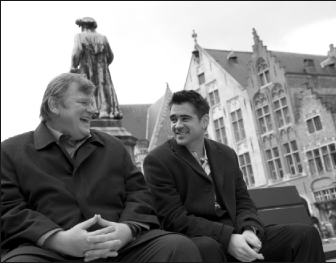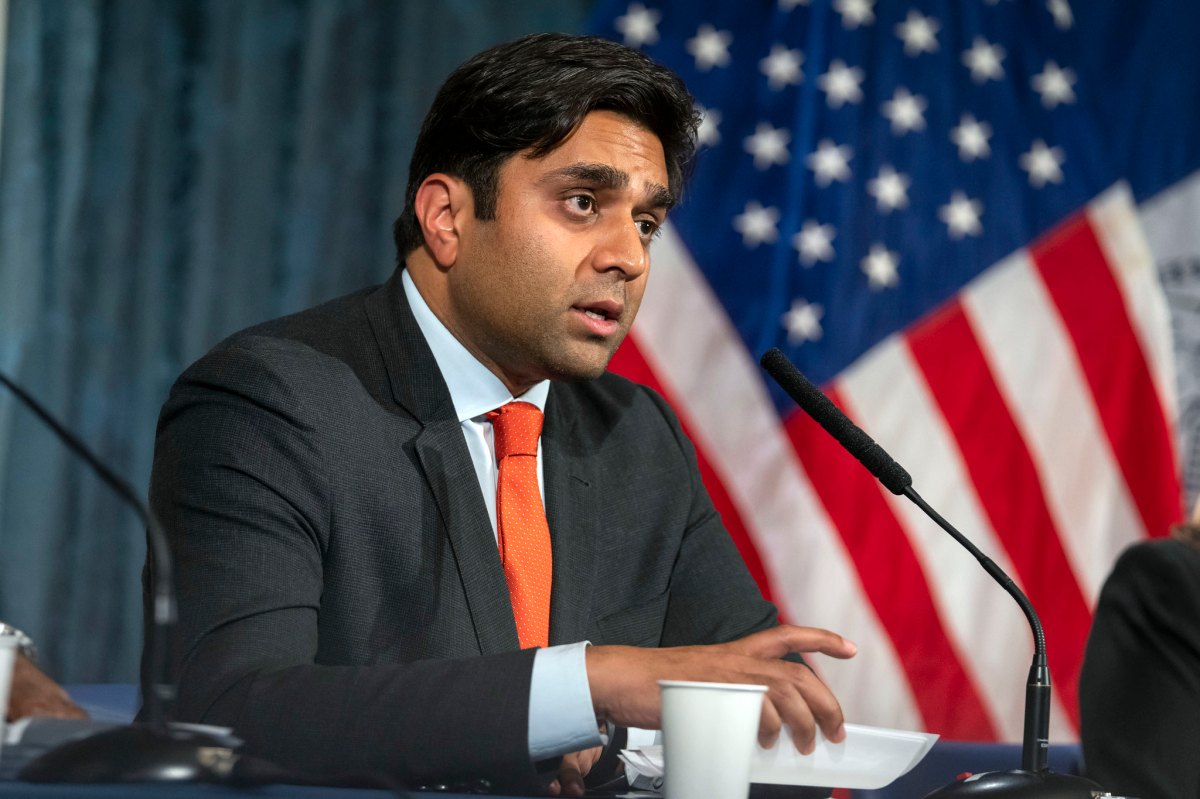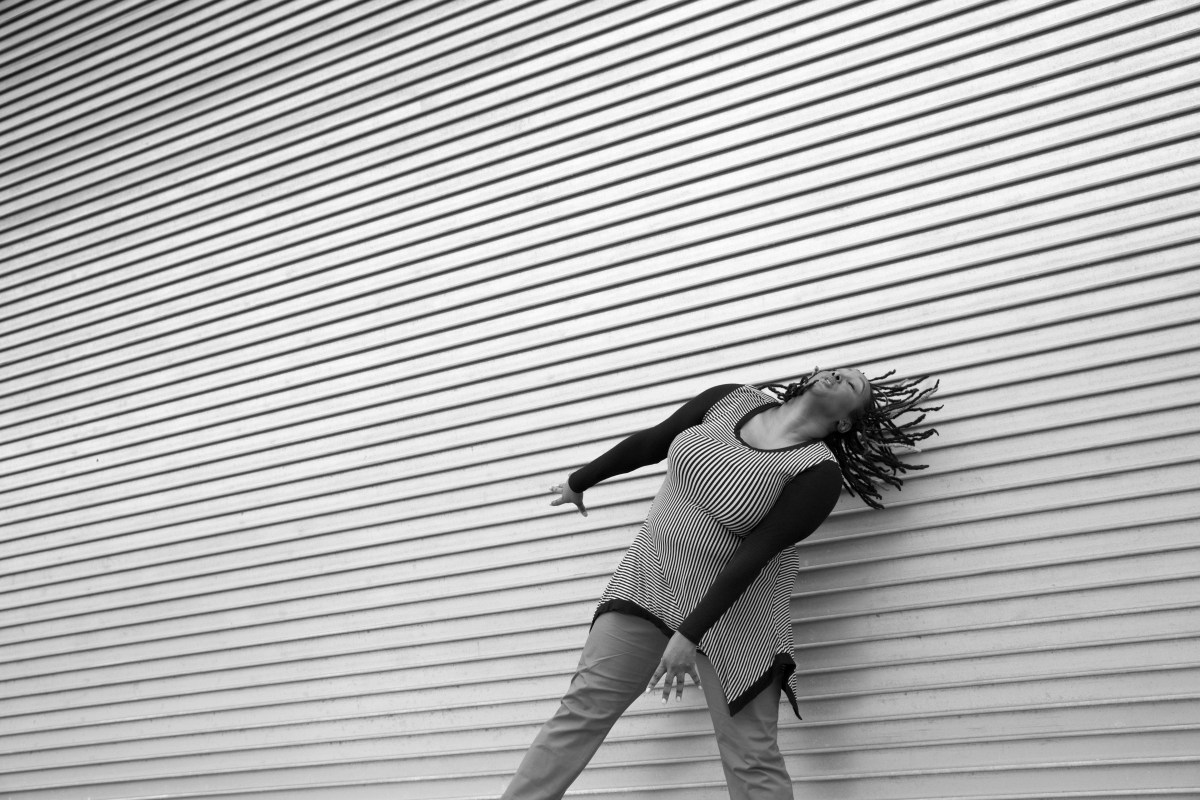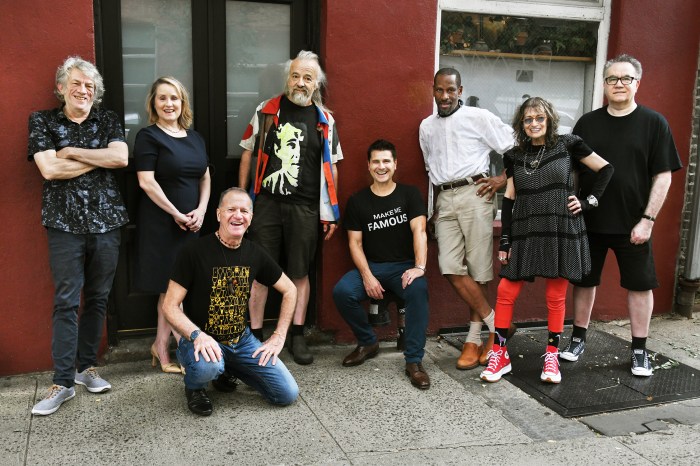By Steven Snyder
Only in a world created by Martin McDonagh could we segue so seamlessly between a sequence involving suicide and that of a drug binge which culminates in one man using karate against a “midget.”
Already known around the world as one of the most unique, creative and perverse minds of the theater world, McDonagh — the playwright behind such esteemed, Tony-nominated plays as “The Pillowman” and “The Lieutenant of Inishmore” — made the leap into the movie world in 2004, with the critically acclaimed Oscar-winning short film “Six Shooter.”
And now, with “In Bruges,” McDonagh offers up his first, gloriously twisted, feature — a macabre freak show of a comedy that has already divided both audiences and critics as the opening night film of this year’s Sundance Film Festival. Existing as something of a hybrid between “The Odd Couple” and “Pulp Fiction,” it’s a safe bet that this is the weirdest comedy to hit movie screens since 2003’s “Bad Santa,”
Even before the movie’s title card, McDonagh’s affinity for dark and dreary dialogue cuts through the silence. Cursing up a storm, we hear Ray (Collin Farrell) ranting to friend and colleague Ken (Brendan Gleeson) about his distaste for this small Belgian town — the tourist destination that these hoodlums have been ordered to hide out in until they receive further instructions for their boss (Ralph Fiennes). As McDonagh jumps back and forth in time, we come to learn more about their crime — the shooting of a priest that goes disastrously wrong — and the way in which Ray’s verbal tirades merely mask a scared and shattered soul.
Early on, we think the movie’s about Ray — the gruff, angry comic relief who begrudgingly accompanies Ken on his daily sightseeing tours, all the while wishing he were in a pub. But when their superior orders Ken to kill Ray for the bungled priest assassination, McDonagh’s focus shifts away from the frazzled triggerman and towards his older and wiser partner Ken, who must now decide what matters more: His boss or his friend.
Those who have been turned off by “In Bruges” seem unable to reconcile its humor with its horrors. Just like McDonagh’s works on the stage, his movie is equally fascinated in the comedy that can be found in the darkest of catastrophes, and the pain that can be milked out of the funniest punch line.
As a writer, McDonagh handles these sudden shifts of tone and temper with style, creating an almost flawless plot in which each detail and every conversation proves essential in the story’s closing chapter. As a first-time feature director, he proves equally skilled, giving this small Belgian burg a palpable sense of space and dimension, bestowing the city with its own conflicted personality, and bringing out in the insecure Farrell, the wise Gleeson, and the explosive Fiennes a trio of performances that make these characters intoxicating riddles unto themselves, constantly changing colors.
The film is at times brutal and gory, there’s no mistaking that, and its jagged construction — fusing together such disparate genres and styles — was enough to send Sundance audiences into a state of confusion, unsure at times if they were meant to laugh or cry. But those who will appreciate “In Bruges” most are those who have discovered the magic of McDonagh’s work in the theater — that it’s about laughing and crying at the same time, at seeing the best and worst of human nature duking it out within the same heart.



































